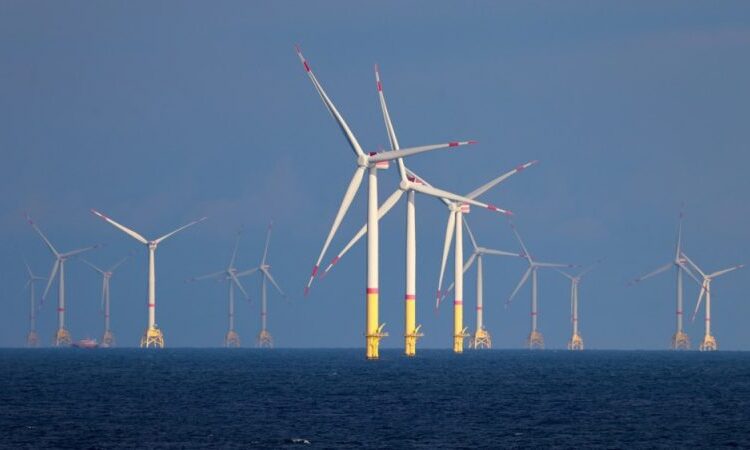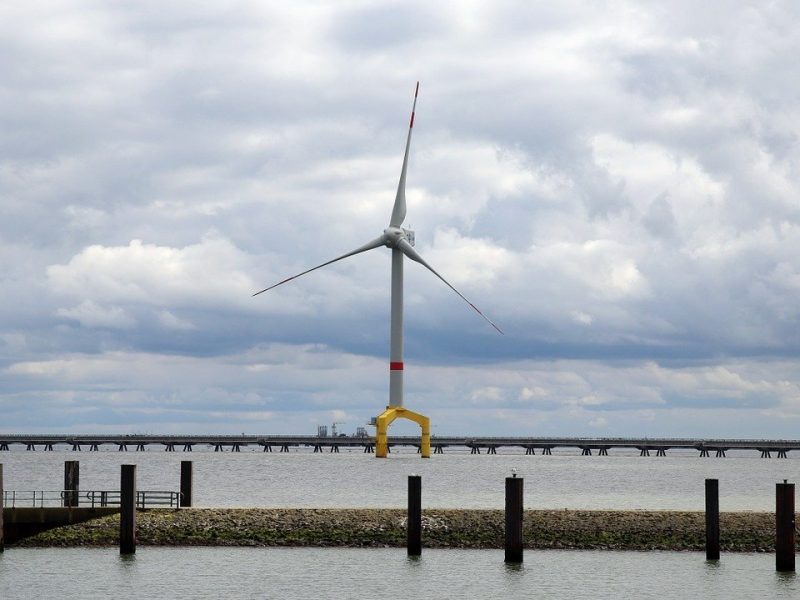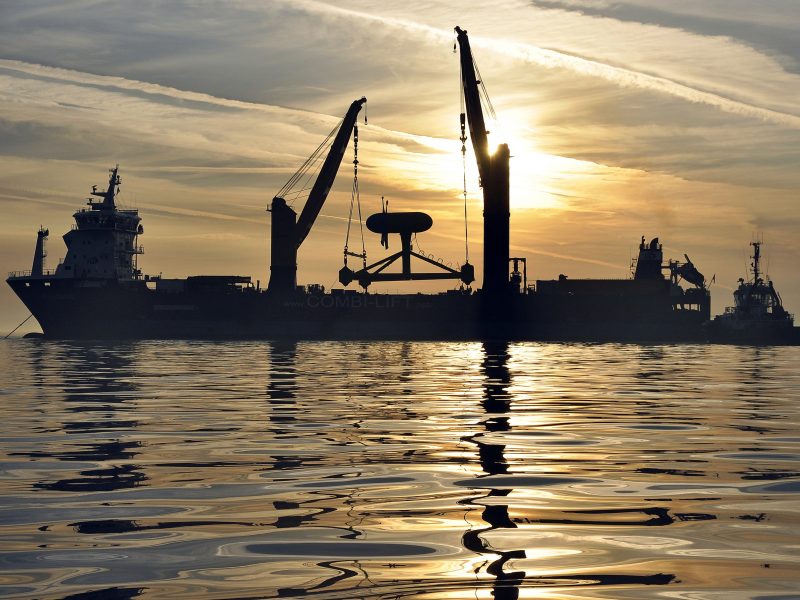
Despite some progress, more work is needed in the development of offshore renewable energies to achieve Europe’s ambitious ‘blue’ coastal economy targets, a report by the European Court of Auditors (ECA) found.
EU support and funding have proved essential for the development of offshore renewable energies since the adoption of the bloc’s strategy in 2020, the ECA audit, published on Monday (September 18), found.
The strategy sets high targets of an installed capacity of 60 GW of offshore wind and 1 GW of ocean energy by 2030, and 300 GW and 40 GW respectively by 2050.
To achieve these targets, the annual deployment rates of offshore wind and ocean energy will need to be significantly increased.
Wave and tidal technologies in particular will need to be developed further in order to meet the 40 GW targets, and the Commission should support initiatives for offshore wind and ocean energy technologies at sea basin level, the report suggests.
However, as inflation soars, the large-scale rollout of offshore energy infrastructure is slowing down – with other challenges, such as restricted maritime space, potentially hindering the implementation of projects in Europe.
The auditors praised the Commission’s maritime spatial planning as instrumental in identifying potential conflicts, providing guidance and financing the development of offshore renewables.
However, the report underlines that the coexistence of different sectors at sea is not yet common practice, leading to tensions with the fisheries sector operating in areas where offshore projects are developed.
A lack of common projects between countries sharing maritime borders constitutes another missed opportunity to use marine spaces more effectively, auditors say, while disruptions to the raw materials supply chain could also delay the development of offshore facilities and technologies, as the EU relies heavily on imports for their construction.
“The EU’s dependence on raw materials may create potential bottlenecks, and raises concerns about the security of supply,” said Nikolaos Milionis, lead Auditor of the report.
Socio-economic impacts
The deployment of offshore renewable energy must remain sensitive to its socioeconomic and environmental impacts, the auditors highlighted.
While offshore technologies offer opportunities for new jobs, the EU also needs to address issues of upskilling and reskilling in the energy sector. Additionally, the potential negative consequences on jobs in the fisheries sector will need to be further investigated.
The Commission’s strategy did not initially take into account the effect of offshore technologies on the environment, either.
The report also warns that the changes in marine ecosystems caused by the deployment of offshore renewable energies could lead to habitat loss and degradation.
And since the EU would have to increase its deployment of offshore technologies to meet its climate targets, the effects on the environment could be detrimental.
“The Blue Revolution should not be pursued at all costs,” auditor Milionis warned, adding that respect and consideration for the environmental consequences is needed.
[Edited by Nathalie Weatherald]









